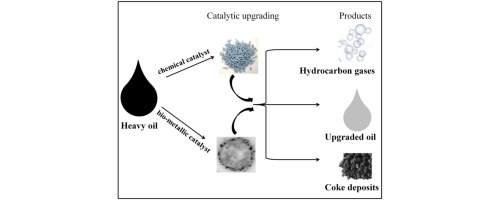Physics Department News
Upgrading heavy oils using bio-metallic catalysts
Novel work by the group of Prof. Lynne Macaskie (Biosciences, University of Birmingham), utilising the Warwick XPS Facility, has demonstrated that bio-metallic catalysts can be used to upgrade heavy oil in to lighter, more commercially-viable products in a more efficient way than current catalysts.

With the continuous depletion of global oil reserves, unconventional alternative oil resources like heavy oil and bitumen have become increasingly attractive. This study investigates the use of bimetallic bio-nanoparticles (bio-NPs), a potential alternative to commercial catalysts in heavy oil upgrading. The bio-NPs were made by sequential reduction of precious metal (Pd and Pt) ions with hydrogen as the electron donor at 5 wt% and 20 wt% metal loading using bacterial (Desulfovibrio desulfuricans and Bacillus benzeovorans) cells as support.
The potential advantage of using bio-NPs is that the precious metals can be sourced cheaply from waste streams, which could serve as a potential platform for the green synthesis of catalytically active materials using bacteria for in-situ catalytic upgrading of heavy oils.
For further information, see J.B. Omajali et al., Appl. Catal. B 203 (2017) 807.
